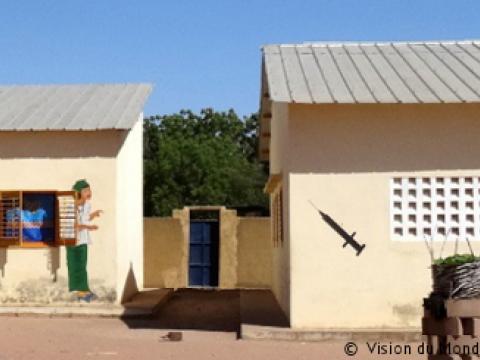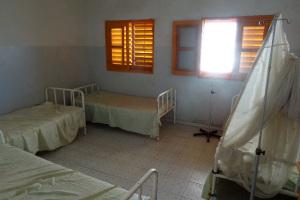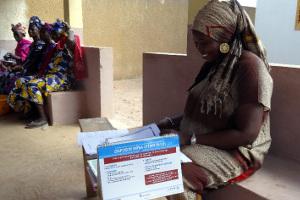The secret to great healthcare

The small rural municipality of Diokoul in Senegal is posting excellent healthcare results these days. One of the leading factors in this success has been the establishment of a network of dedicated facilities funded by sponsors.
Access to healthcare for all: from dream to reality in Diokoul
Since beginning to operate in Diokoul in 2006, access to healthcare for all has been one of World Vision's top priorities. In less than ten years, significant progress has been made which has taken Diokoul from being originally a municipality with no formal healthcare provision to being a place that is now able to respond to the healthcare needs of its inhabitants. Today they can receive treatment at health centres and health huts. But what is the difference between these two?
Health centres and health huts: healthcare access points for all
The community of Diokoul now has access to four health centres and five health huts. The health centre is bigger and identified by the kind of services if offers. While both centre and hut offer facilities for consultations, vaccinations and hospital transfers, the health centre also provides maternity services.
Another difference concerns the staffing. While the health centre is run by both a 'health centre nurse' with a State diploma and by a midwife, the health hut is managed by a community health agent who also has a State diploma and also by a 'matron' - a female colleague who may not have a diploma in midwifery but who is trained nevertheless to assist during pregnancies and births. Community volunteers complete the staff at both health centres and health huts.
In short, the health hut is an instrument of community outreach. Its smaller scale and more modest requirements for qualified staff give it the advantage of being easy to set up and replicated in areas that are far removed from health centres.
World Vision working towards sustainable involvement
The arrival of World Vision has brought considerable progress in healthcare. This is mainly due to the implementation of these new healthcare hubs, which deliver extended response coverage for healthcare issues. This is the proof: a vaccination rate in the 0-5 age range of almost 100%, widespread increase of prenatal check-ups, a drop in the number of unassisted births and a progressive change in mentality regarding routine hygiene practices.
Naturally, all efforts to equip Diokoul with a functional healthcare system follow the sustainability model. In order to ensure that the community adopts these facilities as their own and progressively assumes responsibility for healthcare management, World Vision is investing heavily in training and awareness-raising campaigns which have the effect of giving skills to people in the community and encouraging them to be committed and responsible in their service to others. One significant change is the arrival of an ambulance, which will improve the options for transfer to specialised care for the 33 villages that comprise the Diokoul municipality. Cases requiring hospitalisation may now be more rapidly admitted to the regional hospital in Kaffrine 45km away.

